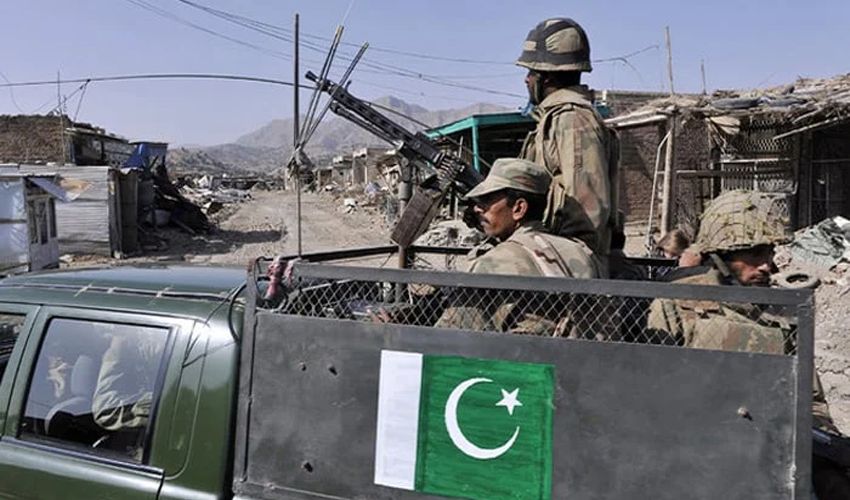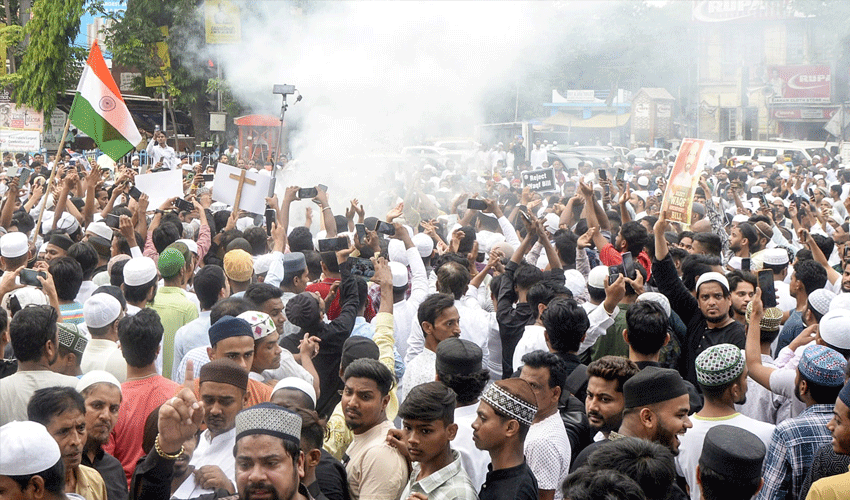Pakistan has recently announced a fresh counter-terrorism operation, Azm-e-Istehkam, to rein in the surging terrorism in the country. This is not the first operation against terrorism in Pakistan and unfortunately, may not be the last one.
Since the September 11 attacks in the US, Pakistan has launched several operations to root out terrorism from within its borders that has spilled over from the neighbouring Afghanistan. These include Al Mizan (2002), Zalzala (2008), Sher Dil, Rah-e-Haq, Rah-e-Nijat (2009), Zarb-i-Azab (2014), and Raddul Fassad (2017).
So it merits the question why there is still room for new operations and what their objectives will be that are different from the previous actions.
The answer lies in the intricate linkage of terrorism with the indigenous crises in Pakistan like the flawed decision of successive governments to attempt peace deals with Taliban, the TTP’s changing strategies, the discourse between the TTP and the political leadership, and chaos in federal and provincial relations.
Therefore, it would be prudent to focus on these longstanding challenges first than investing billions on counter-terrorism operations. The current operation, Azm-e-Istehkam, is going to be launched with more vigour, but amid the same crises.
However, a lack of consensus among the stakeholders is so far posing a significant challenge to the launch of the operation: the federal and provincial governments aren’t on the same page, which may not be too conducive for achieving the objectives of the operation.
Canada took the all stakeholders on board before launching its counter-terrorism strategy after 9/11, collaborating with its international partners, security, intelligence as well as federal, provincial and municipal law enforcement agencies.
On the other hand, in Pakistan, the Khyber Pakhtunkhwa provincial government has serious reservations over the real intentions of the proposed military action. Apparently, most of the major political parties, in KP as well as other province, oppose the operation.
Adviser to the KP government on information, Barrister Saif, has claimed that the public has not been informed about the operation, its duration or its methods. He suggested the federal government take parliament and provincial assemblies into confidence and consult all the political parties.
Maulana Fazlur Rehman has cautioned that the operation is going to create a serious crisis in KP. A jirga in the province expressed a lack of trust in it, calling it ‘Adam-e-Istehkam’.
However, Defence Minister Khawaja Asif has insisted that the government would strike terrorist havens in Afghanistan.
This lack of consensus among the political parties may hinder Operation Azm-e-Istehkam because wide-ranging consensus and national solidarity are imperative to the military action.
Besides the abovementioned reasons, the regional trust deficit could also be an irritant in the execution of the operation. Marginalized regions, such as the former Federally Administered Tribal Areas (FATA) and parts of Balochistan, have historically felt neglected by the ruling governments in terms of infrastructure development, education, healthcare, and employment opportunities.
This trust deficit has only increased in the wake of multiple military operations over the years, which the local populations claim caused a lot of misery and damage in North Wazirstan district.
For example, about a year and half ago, the government issued tokens to tribesmen worth Rs400,000 for the houses destroyed in previous operations and Rs160,000 for the ones partially damaged. But the affectees have yet to receive any money so far.
Barrister Saif has stated that “the government of KP and people will not support the operation until its details are clear”. This lack of trust, confidence and consensus between locals and the government will retard the progress of operation.
In addition to the political differences, the TTP’s new strategy of attacking military targets has raised much alarm. It’s shifted its targeting strategy from attacks on civilians to attacks on army personnel and bases in Pakistan.
For instance, terrorist attacks killed at least 10 police officers during the elections week earlier this year. These attacks were claimed by the newly emerged militant group, Tehreek-e-Jihad Pakistan, or TJP, reportedly an offshoot of the banned TTP.
The one reason behind this change of strategy could be to damage the state institutions. The attacks on state institutions are more concerning for the rulers as that shatters the political and institutional structure of Pakistan amid civil mistrust in the state.
Thus, the challenge of targeting military and police with no considerable capacity building of the forces may prove futile in the fight against terrorism. The army must conduct joint military drills and training sessions.
Furthermore, religious extremism is another factor behind the exponential rise in terrorism. Religious fundamentalist groups are the core support base of the TTP, frustrated with the state over the non-implementation of Shariah law in Pakistan.
When the TTP established its version of the Shariah law in northwestern Pakistan on the lines of the Afghan Taliban before 9/11, it attracted members of local radical religious groups from the districts of Malakand, Bajaur and Orakzai, among others, thereby expanding the TTP’s base.
It was in response to this threat to national security that the government launched a military operation back then.
The question is how the operation will ensure success in dismantling TTP. The success of the operation lies in certain pragmatic actions. The Pakistan government should take certain pragmatic actions. Firstly, from now onward, Pakistan should stop considering any peace deals with the Taliban, as happened during the time of the Imran Khan government.
That failure of that deal reignited the notion of "good" and "bad" Taliban.
The second pragmatic action is taking the local people of the KP region into confidence about the operation. Local people are rightly concerned about the devastation of the region because, ultimately, local people bear the brunt of military operations.
The devastating tale of the Swat operation is a glaring example here. Learning from that experience, communication with the locals any operation is mandatory.
Also, the government of Pakistan ought to mull over countering the TTP’s strategy of attacking military targets in Pakistan. On March 16, suicide bombers raided a Pakistan Army base near the Afghan border. Therefore, the long-term plan should be to immediately start building the capacity of the police for it to be able to defeat the TTP through kinetic measures.
As the JUI-F chief said, things have reached a point where the police could not go out at night due to the presence of armed forces.
Moreover, Pakistan is in dire need of investing in education to reinvigorate the real meaning and essence of Islam. As the highest result of education is tolerance, Pakistan has become a hub of intolerance due to a lack of viable and modern approaches and a dearth of educational budget.
Nations facing security vulnerabilities build peace and tolerance among people before going after terrorism.
Last but not least, before igniting the lethal fumes of war, negotiation should be the preferred solution. Engaging in communication with the Afghan government is imperative.
Colombia provides a glaring example in this case. In 2016, it opted for peace, establishing a ceasefire with major rebel groups (FARC) active since 1964. Despite initial setbacks, Colombia recently enacted a total peace bill to forge agreements with remaining armed groups.
The Colombian peace process has been arduous, but the government was determined to achieve an end to the conflict, even if it necessitated sitting down with some of the armed groups.
Pakistan should chalk up a viable policy plan for making the operation successful by learning from the failures of previous such experiences and addressing them with insidious tactics and economic sustainability.
The writer is a professor at Government College University, Lahore and has a degree in literature.



























